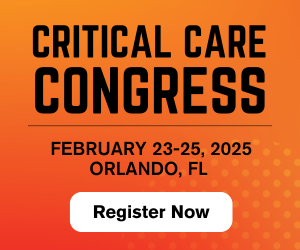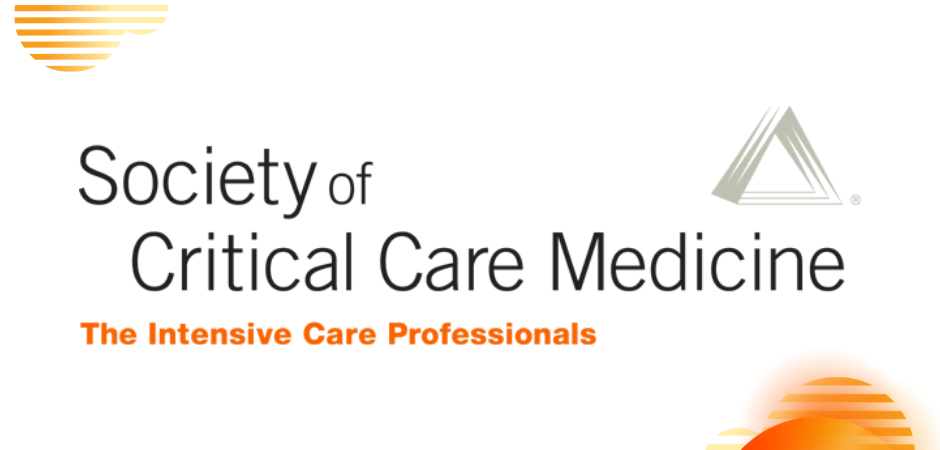The Society of Critical Care Medicine (SCCM) leadership is evaluating the impact of key areas of concern from recent U.S. presidential executive orders that could affect the Society, its members, the critical care community, and patient care. Regardless of shifts in government policy or funding, SCCM remains steadfast in its mission to advance critical care worldwide. SCCM President Lauren R. Sorce, PhD, RN, CPNP-AC/PC, FAAN, FCCM, outlines updates on research, travel, communication restrictions, and the Society’s focus.
As many of us navigate uncertainty surrounding recent U.S. Presidential executive orders, I want to take a moment to acknowledge the concerns voiced by the Society of Critical Care Medicine (SCCM) membership and the broader healthcare community.
The pace of change announced by the new administration is rapid. Policies may face legal challenges or evolve in response to new circumstances. However, the underlying concerns, trends, and broad implications require ongoing vigilance. Regardless of shifts in government policy or funding, SCCM remains steadfast in its mission to advance critical care worldwide.
The personal impact of these developments is significant. Members, colleagues, and friends are experiencing disruption—from those working in federal institutions, to researchers, and to those in resource-limited settings where funding is critical. SCCM is committed to supporting all those impacted and welcomes insights into how we can best respond in this shifting landscape.
The Society’s leadership has compiled a report outlining key areas of concern—both broad and specific—that could affect SCCM, its members, the critical care community, and patient care. Most issues have far-reaching implications, and we are working collaboratively with other medical societies, including the
Critical Care Societies Collaborative, the Council of Medical Specialty Societies, and the American Medical Association. When professional associations speak with one unified voice, they amplify impact for meaningful change.
Areas cited in the report include:
Research: The research community is in a state of uncertainty, with concerns about the continuity of clinical trials, payment of research personnel, potential loss of data, and publishing policies. This instability has serious potential to hinder scientific progress and disrupt the research workforce.
Travel and Communications Restrictions: The Society is monitoring how travel and communication restrictions for employees at federal agencies will impact the transparent and timely sharing of health information. Limitations on communication and collaboration may impede the ability of healthcare workers to respond effectively to public health emergencies, learn and apply patient care best practices, and conduct essential research.
International Disruption: Disruptions to international relationships and agencies have serious implications for research, patient care, and attitudes worldwide. Actions such as withdrawing from the World Health Organization (WHO) and disrupting the U.S. Agency for International Development (USAID) impede the country's capacity to manage and respond to public health threats effectively, both internationally and domestically.
2025 Critical Care Congress:
- Some federal employees may not be able to travel and present at Congress. SCCM is mitigating any disruptions to the scientific program.
- Members of the international critical care community and international trainees at U.S. institutions have expressed apprehension about travel to Orlando, Florida. SCCM has worked to ensure education, including Congress Digital, is available in many formats with equitable pricing.
- Although we do not expect any adverse events during the upcoming Critical Care Congress, SCCM plans for all contingencies and has developed guidance in the event of U.S. Immigration and Customs Enforcement (ICE) actions near the conference site. The guidance, forthcoming in the Congress App and online, will include advising registrants, especially international registrants, to keep identification with them at all times.
SCCM Diversity, Equity and Inclusion (DEI) Programs: SCCM programs related to DEI are not impacted by the recent executive orders.
- SCCM’s DEI programs are not in violation of the Civil Rights Act. The Society values and seeks diversity and inclusive practices within the critical care profession and within the SCCM organization. SCCM promotes involvement, innovation, and expanded access to leadership opportunities that maximize engagement across diverse populations.
- In its continued commitment to equity, SCCM recently launched a global pricing structure. This is an innovative, inclusive approach to pricing that opens doors for critical care professionals everywhere by making purchases more affordable and accessible.
SCCM Communications: SCCM has a well-established history of working with numerous
U.S Health and Human Services agencies, amplifying important communications from these groups, from calls for volunteers to patient care alerts. If these communications are significantly disrupted, SCCM will seek other sources for these important activities.
SCCM Research Activities and Patient Care Initiatives: SCCM remains committed to critical care research through
Discovery, the Critical Care Research Network, and the publication of its
scientific journals.
- Discovery is currently implementing two federally funded studies: the Assessment of Implementation of Methods in Sepsis and Respiratory Failure (AIMS), funded by the National Institutes of Health, and the emTruth Project, funded by the National Science Foundation. The Society is monitoring how these grants may be impacted.
- The Society’s important work as a member of the WHO’s Acute Care Action Network (ACAN) and its collaboration with WHO on reducing mortality from sepsis in low-resource settings are expected to continue uninterrupted.
- The Society is monitoring how its journals may be impacted by orders to Centers for Disease Control and Prevention researchers to retract manuscripts in the journal submission process that do not align with the new administration’s policies.
The Society’s strength lies in the collective expertise, resilience, and shared mission of its members and partners. Our commitment to improving care for the critically ill and injured is unwavering. No matter the changes ahead, SCCM will remain a trusted source of information, education, connection, and support for all critical care professionals.
You may always reach out to the president with feedback and ideas at
president@sccm.org.
Thank you for your dedication to the Society, to critical care, and to the patients and families we serve each day.






